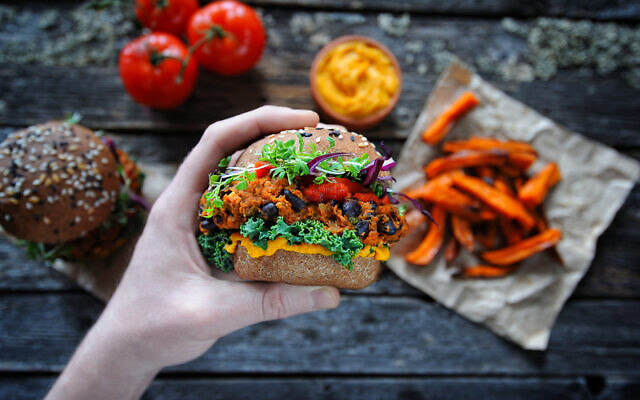It’s kosher – or maybe not
Impossible Pork is here – but the plant-based meat will not be certified as kosher.
Impossible Foods, the American plant-based meat company, is releasing a long-awaited new product – but unlike the company’s wildly popular Impossible Burger, it won’t be certified kosher.
The largest and most influential certifier of kosher products in the world has declined to endorse Impossible Pork, even though nothing about its ingredients or preparation conflicts with Jewish dietary laws.
“That we didn’t give an OU to it, is not because it wasn’t kosher per se,” said Rabbi Menachem Genack, the CEO of the Orthodox Union’s kosher division.
“It may indeed be completely [kosher] in terms of its ingredients: If it’s completely plant-derived, it’s kosher. Just in terms of sensitivities to the consumer … it didn’t get it.”
For Jews who keep kosher, the Impossible Burger has allowed some food experiences that would otherwise be off-limits because of the prohibition in dietary law on mixing milk and meat.
For the last five years, Jews and kosher restaurants have been able to serve up cheese-topped chili, greasy cheeseburgers, and that quintessential American diner pairing: a hamburger with a milkshake.
“The Impossible Burger itself is a huge, huge success and people really, really like it,” Genack said. “It’s a really excellent, excellent product in every respect.”
With the new product, Impossible Foods wanted to give that same experience to Jews and Muslims who do not eat pork, along with others who are seeking to avoid animal products or reduce their environmental impact.
But Genack said he and others at the OU recalled what happened when they once certified “bacon” that wasn’t made of pig.
“We still get deluged with calls from consumers who either don’t get it or they’re uncomfortable with it,” he said.
The OU does certifiy other products that might seem to conflict with Jewish dietary law, explaining on its website that “a fish sauce may display a picture of a non-kosher fish, the OU may appear on artificial crab or pork, or there may be a recipe for a non-kosher food item on the label.”
But ultimately agency officials decided that a product called “pork” just wouldn’t fly, Genack said.
“We of course discussed it with the company and they understood,” he said.
JTA
Get The AJN Newsletter by email and never miss our top stories Free Sign Up


comments